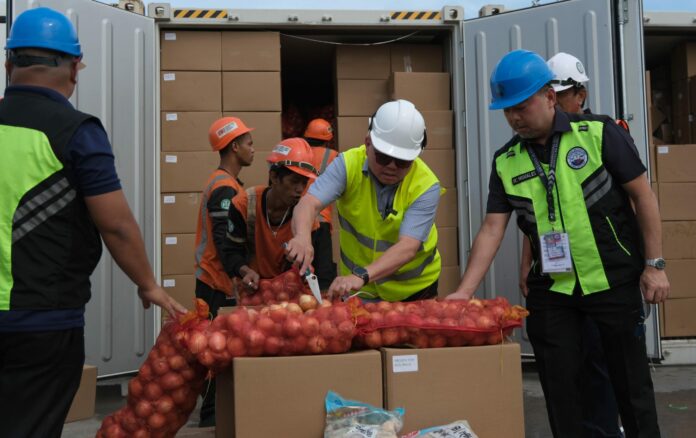The Department of Agriculture (DA) is ramping up its anti-smuggling campaign—particularly targeting onions—with the support of the Philippine National Police (PNP), following a string of smuggling cases in Cagayan de Oro, Subic, and Manila.
The move comes in line with the recent enactment of the Anti-Agricultural Economic Sabotage Act, which strengthens legal tools for enforcement, and the directive to President Ferdinand Marcos Jr. to protect famers, consumers and local business and guard public health against illicit trade activities.
“We did not give any permits to anybody since early this year. Lahat ng imported onions sa lahat ng palengke ay smuggled iyan,” Agriculture Secretary Francisco P. Tiu Laurel Jr. said during an 18 June visit to Paco Market in Manila. “It’s the directive of President BongBong Marcos to stop smuggling—that’s why we now have this law.”
Tiu Laurel noted that suspected imported red onions—larger and cleaner than local varieties—have surfaced in markets despite the absence of import permits. He reiterated that the entire supply chain could be held accountable under the new law, including brokers, truck drivers, and retailers. “But of course, our target remains the so-called ‘big fish.’ We will raid warehouses with the help of the PNP,” he added.
The DA will conduct lab testing of seized onions to ensure they are not a public health threat. Previous inspections found traces of E. coli and heavy metals in smuggled white onions.
Tiu Laurel urged vendors to cooperate in tracing the origin of the goods. “I’m very concerned. This should be a time of recovery for farmers, but their income is being undermined,” he said.
Agriculture Assistant Secretary for Agribusiness, Marketing, and Consumer Affairs Genevieve Velicaria-Guevarra said the Department of Agriculture may also train police officers to distinguish between locally produced and imported agricultural products, including pork, as part of efforts to strengthen the government’s anti-smuggling campaign
Republic Act No. 12022, signed recently by the President, repeals the 2016 Anti-Agricultural Smuggling Act and introduces tougher, more comprehensive enforcement mechanisms.







